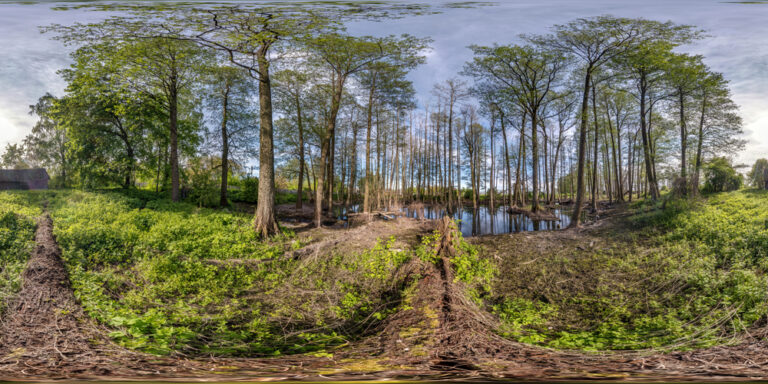Can virtual reality enhance scope sensitivity? Experimental evidence from the Amazon Rainforest

Download
Given the Amazon Rainforest’s ecological importance, accurately valuing its conservation benefits is critical for informed policy decisions.
This study compares the efficacy of using immersive virtual reality (VR) and high-quality video presentations to elicit ‘willingness to pay’ (WTP) for conservation activities in the Amazon Rainforest. It examines whether VR elicits valuations of conservation benefits that are sensitive to the scope or scale of conservation (‘scope-sensitive valuations’), and whether any benefits justify its higher cost. It also explores variations within responses to VR to identify experiential factors, such as feeling present in the environment or feeling physically uncomfortable, that moderate scope sensitivity.
The study finds that high-quality video presentations generate scope-sensitive willingness to pay (WTP) for Amazon Rainforest conservation as effectively as immersive VR, while offering greater accessibility and lower cost than VR.
Key points for decision-makers
- Theoretical arguments suggest VR’s immersive, multi-sensory environment may help respondents better grasp environmental scale and thus contribute to how they value larger-scale conservation of environmental ‘goods’ such as the Amazon Rainforest.
- Participants in this study were randomly assigned to VR or video presentations and asked their WTP for conservation programmes protecting 20% and 50% of the Amazon Rainforest (i.e. a lesser or greater ‘scope’).
- Both formats successfully elicited scope-sensitive valuations, indicating that visual communication of environmental scale – rather than full sensory immersion – is sufficient to elicit WTP responses.
- Looking into the experience of VR revealed that creating a sense of being present in the environment and realism were positively associated with a higher scope sensitivity, whereas a feeling of physical discomfort (e.g. from feeling disorientated) was negatively associated with it.
- These findings validate immersive VR as capable of eliciting scope-sensitive valuations for remote ecosystems from people who are far removed from them and do not ‘use’ them directly, while establishing video’s equivalent performance at substantially lower implementation costs.

